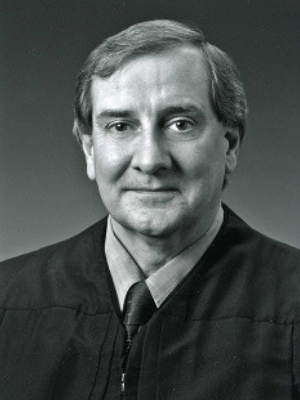ANCHORAGE, Alaska (Legal Newsline) – On Sept. 21, the Supreme Court of the State of Alaska vacated a judgment that prevented a woman from bringing an officer in as a witness in a lawsuit over a man's injuries after he was allegedly pushed by a bartender, ordering a new trial.
"Because we conclude it was a prejudicial abuse of discretion to preclude the officer from testifying as a rebuttal witness with respect to the defense expert’s new and unexpected trial opinions, we vacate the judgment and remand for a new trial without reaching the cross-examination issue," the court wrote.
The issue came during trial when retired Bellevue, Washington, police chief Donald Van Blaricom, an expert witness for defendants J.G. Pattee Inc., Matthew Oberlander and John G. Pattee, expanded his trial testimony from his written report.

In the trial, Van Blaricom gave even more reasons why a Oberlander was justified to use force that wasn’t included in his written testimony, including the notion that the bar had a responsibility to keep the entrance safe, and that local police look to bar personnel to keep the bar and the entrance safe.
Plaintiff Lydia Johnson, on behalf of the estate of Davy Johnson, wanted to cross-examine the expert with testimony from Anchorage police officer Gregory Witte, who arrived on the scene after the incident and challenged the expert’s new testimony. The expert had already been given the officer’s testimony to review before he wrote his report.
Still, the Superior Court, Third Judicial District would not permit the cross-examination and said Johnson could bring the officer as an expert witness. When she tried to do this, the defendants objected and said Johnson shouldn’t be allowed to bring the officer because he wasn’t on her witness list. The Superior Court agreed with the defendants and did not let the officer testify.
In the end, the jury found the bar employee did use reasonable force, and the plaintiffs appealed.
Johnson alleged the Superior Court “erred by precluding [Johnson’s] cross-examination of the expert and her calling the officer to testify as a rebuttal witness,” according to the ruling.
The Supreme Court said it was a “prejudicial abuse of discretion to preclude the officer from testifying as a rebuttal witness with respect to the defense expert’s new and unexpected trial opinions.”
Considering this, the Supreme Court vacated the Superior Court’s judgment and remanded a new trial without touching on the cross-examination disagreement.
Johnson filed the lawsuit after Davy Johnson suffered a skull fracture when he hit his head on the sidewalk outside of a bar.
The incident happened after Oberlander, a bartender assisting security, had been informed Davy Johnson wasn’t allowed to come back into the bar or stand in the doorway. Johnson didn’t move, so Oberlander allegedly pushed him, causing him to fall backward and hit his head on the sidewalk.
Justice Joel Bolger dissented from the majority opinion and stated that Johnson failed to state her arguments for allowing the rebuttal testimony.
"If she had raised the argument that Van Blaricom's testimony could not reasonably have been anticipated, then she could have made an offer of proof to support her argument,” Bolger said.
He added that because Johnson didn’t do that, it didn’t give the defendants a chance to respond and the Superior Court an opportunity to rule on it. Because of this, Bolger said he believes Johnson shouldn’t get a new trial.
Chief Justice Craig Stowers authored the opinion while justices Daniel Winfree, Peter J. Maassen and Susan M. Carney concurred.
